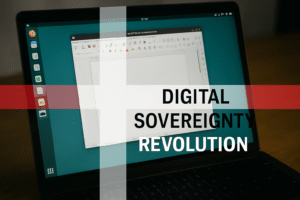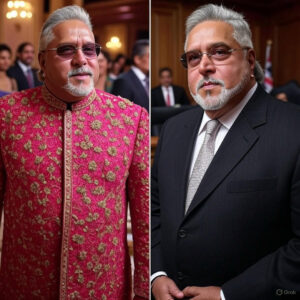In a world of endless Black Friday sales, Instagram hauls, and “flex culture,” we’re constantly told that buying more will make us happy. Yet, study after study reveals a paradox: the thrill of a new gadget fades, but the joy of a sunset hike or a laughter-filled dinner with friends grows richer with time. Why do experiences—not possessions—hold the key to lasting happiness? Let’s dive into the science.
Table of Contents
ToggleThe Hedonic Treadmill: Why We Adapt to “Stuff” (But Not Experiences)
Imagine unboxing the latest iPhone. For a week, it feels magical—until it’s just another tool. This is the Hedonic Treadmill: our tendency to return to a baseline happiness level after positive (or negative) events. Material goods lose their sparkle quickly because they’re static. Experiences, however, evolve.
A 2014 Cornell study found that 57% of people derived more happiness from experiential purchases like vacations or concerts than material ones. Why?
Neurochemical Magic: Anticipating a trip floods your brain with dopamine (the “reward” chemical). During the experience, oxytocin (the “bonding” hormone) strengthens social connections, while serotonin stabilizes mood.
Memory Distillation: Over time, our brains edit out stress (e.g., lost luggage) and amplify positive moments (e.g., a stunning view). A 2003 study by Van Boven & Gilovich showed people enjoy retelling experiences far more than describing possessions.
Why Experiences Outshine Possessions
1. They Become Part of Your Story
That time you got lost in Rome and stumbled upon a hidden café isn’t just a memory—it’s a chapter in your life’s narrative. Experiences shape identity; possessions merely decorate it.
2. Social Glue
Shared experiences—like camping trips or cooking classes—create “social capital.” Harvard researchers found that bonding over challenges (e.g., surviving a rainy hike) builds trust and empathy faster than exchanging gifts.
3. Anticipation Amplifies Joy
Planning a trip or concert gives weeks of dopamine boosts. Even mundane experiences, like a weekly coffee date, become rituals you look forward to.
4. No Buyer’s Remorse
Unlike a designer bag that loses value, experiences appreciate. A 2011 study by Norton & Dunn found people rarely regret spending on travel or events, even if they go sideways.
The Dark Side of Materialism
While buying things isn’t inherently bad, materialism correlates with higher anxiety, loneliness, and environmental strain. Cornell researchers note that materialists often chase status, not satisfaction, trapping them in a cycle of comparison (thanks, Instagram!).
How to Cultivate Experiential Happiness
While buying things isn’t inherently bad, materialism correlates with higher anxiety, loneliness, and environmental strain. Cornell researchers note that materialists often chase status, not satisfaction, trapping them in a cycle of comparison (thanks, Instagram!).
💡 Actionable Tips
Start Small: A picnic > a pricey vacation. Micro-experiences (trying a new recipe, exploring a local park) build momentum.
Savor Mindfully: After an experience, journal about it or share stories with friends. Mentally revisiting the smell of campfire smoke or a friend’s laugh extends the joy.
Combine Minimal “Stuff”: Buy a concert T-shirt or frame a ticket stub—tangible reminders that trigger memories.
Plan Socially: Involve others in planning. Discussing “Should we hike the sunrise trail or the waterfall route?” deepens bonds before the trip even starts.
Rewire Your Happiness
Happiness isn’t about owning—it’s about living. This week, break the treadmill: swap a shopping scroll for a sunset walk, or host a game night instead of buying another decor piece. As researcher Thomas Gilovich puts it: “Experiences make us happier because they’re us… and we’re the sum of our experiences.”
Your Challenge: Plan one micro-experience in the next 48 hours. Notice how it feels to prioritize doing over having.
What is materialism ?
Materialism (in psychology) is the belief that owning things (like money, gadgets, clothes, or status symbols) is the key to happiness and self-worth. It’s the idea that “more stuff = more joy”—but science shows this rarely lasts.
Example of Materialism:
Imagine you buy the latest smartphone. At first, it feels exciting—you love the sleek design and new features. But within weeks, the novelty fades. Soon, you see ads for an even newer model and start craving it, thinking, “If I get that one, I’ll finally be happy.”
This cycle repeats endlessly:
Materialism: You keep chasing the “high” of new purchases.
Reality: The joy is temporary, and you end up feeling emptier than before.
Materialism vs. Experiences:
Materialist approach: Buying a $500 designer bag to feel “special.”
Result: The bag goes out of style, or you compare yourself to someone with a more expensive bag.
Experiential approach: Spending $500 on a weekend camping trip with friends.
Result: Memories of laughter, campfire stories, and stargazing that you cherish for years.
Why Materialism Fails:
Adaptation: We quickly get used to new things (the “Hedonic Treadmill”).
Comparison: Materialists often measure worth by what others have (“Keeping up with the Joneses”).
Debt & Stress: Overspending on stuff can lead to financial strain.
Materialism isn’t “bad” – it’s human to enjoy nice things! But when we prioritize stuff over experiences or relationships, it often backfires.
In short: Materialism is like eating candy – it feels great in the moment, but it doesn’t nourish you long-term. 😊

Jugaad on Two Wheels: The Hilarious Bike Parcel Hack in Karnataka
The Great Karnataka Bike Parcel Hack: A Jugaad Masterclass #RapidoParcel: In a creative yet controversial move, ride-hailing platform Rapido has found a way around Karnataka’s

Denmark’s Digital Sovereignty Revolution: Linux and LibreOffice Lead the Way
Introduction to Denmark’s Bold Move In June 2025, Denmark’s Ministry of Digital Affairs made headlines by embracing digital sovereignty, ditching Microsoft Windows and Office 365

🏏Sports as a Business Strategy: Insights from Vijay Mallya’s RCB Ownership
🧠 Sports as a Business Strategy (Tool) In modern business, few platforms offer better engagement and emotional connection than sports. From football clubs in Europe

🙏 Apologies in Leadership: Vijay Mallya Public Apology
🧠 Introduction: The Role of Apologies in Leadership In the corporate world, apologies aren’t signs of weakness—they’re strategic acts of leadership. When made with sincerity

Audiobook Production Costs: Navigating Recording Artists, Studio Expenses, and AI’s Impact
The audiobook industry is booming, with over 130 million listeners in the U.S. alone in 2021 and a growing global appetite for audio content. Producing

Media Trial of Vijay Mallya: How Public Perception Shaped Vijay Mallya’s Legacy
Introduction: Media’s Influence on Business Narratives In today’s hyper-connected world, media narratives can make or break a business reputation. For Vijay Mallya, once known as
Lorem ipsum dolor sit amet, consectetur adipiscing elit. Ut elit tellus, luctus nec ullamcorper mattis, pulvinar dapibus leo.

